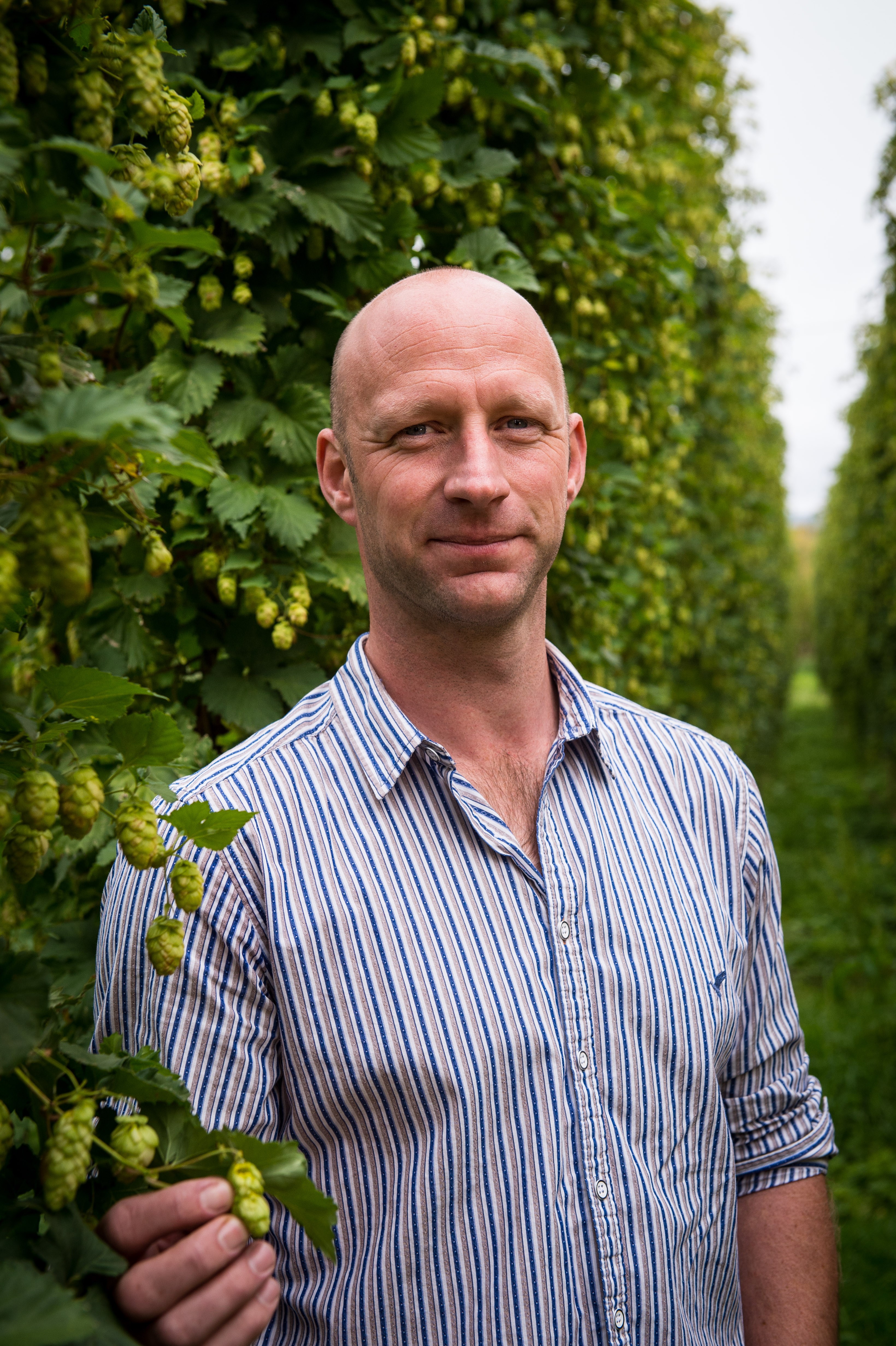
Hop quality up, four varieties axed: HPA

Owen Johnston
The 2017 harvest has delivered Enigma and Australian Cascade hops of unprecedented quality, according to Hop Products Australia, which has also axed four hop varieties from its range.
Enigma showed higher oils this year, while Tasmanian-grown Cascade continues to improve in yield and maintain oils well above US averages, HPA said.
“I think both of these hops are benefiting from some more detailed and stringent investigation of farm techniques,” sales and marketing manager Owen Johnston told Radio Brews News.
“We’ve had some consistent increases in yields and what we think is our lead indicator on impact in beer.”
Johnston said an improvement in this lead indicator – oil dose per gram of hop – gives brewers better “bang for buck”, as well as having the “subjective sensory impact” of greater aromatics.
“I’m particularly looking forward to seeing some of the 2017 Enigma hitting beers throughout the year and seeing that lovely white grape, fruit-driven profile shining through,” he said.
Hops shown the door
Johnston confirmed that for a variety of reasons, 2017 is the last harvest of HPA proprietary varieties Helga and Summer, as well as Willamette, the open market American hop.
Johnston said HPA had only been growing Willamette for one contract customer and that relationship has ended.
“We simply don’t see the need to grow that variety. Any availability for Australian-grown Willamette here through HPA was only as an outcome of our farm yield being greater than the contract requirement, so that was always an anomaly and never really amounted to that much anyway,” he said.
Johnston said Helga was bred as an Australian substitute variety for the noble German cultivar Hallertau Mittelfrueh, which is no longer in line with HPA’s strategy.
“A variety with substitution as its main purpose is not really in keeping with a fully differentiated portfolio of offerings,” he said.
“We’re actually going to encourage people to move back to the European varieties, which we have good availability on through our [parent company] Barth Haas connections worldwide.”
Meanwhile, Summer – also an outcome of breeding for substitutable varieties – has been discontinued for other reasons.
“It’s actually got a little bit more uniqueness around its profile and has some fans out there,” Johnston said.
“The trouble with Summer is it’s been around for quite some time now, longer than Galaxy, and it’s never really gone past… the 25 to 30 tonne range, where obviously some of our other hops have enjoyed much more demand than that.
“It’s also a very patchy performer agronomically and it’s proven too inconsistent to fulfil our supply promise around.
“If the yield of a variety yo-yos around dramatically, plus or minus more than the 15 per cent we’re accounting for, it becomes very hard to make supply promises around.
“On a small customer base, your opportunities for spot sales that will take up positive variants is quite hard.
“Every day you have a negative variant, you’re disappointing someone, somewhere, which is not what we’re about,” he said.
HPA said brewers that have previously contracted these varieties have already been advised that they will not be available after the 2017 crop is sold.
“If you are seeking recommended substitutions for these varieties then please contact your HPA representative,” the company said.
The removal of these varieties will create space to further increase production of Galaxy, Enigma and some new experimental varieties.
Experimental varieties
The fourth variety that has been deleted is HPA-035, which Johnston said has not quite reached HPA’s commercial expectations.
“People are happy to try it, they seem to like the hop, people say it’s got a lot of potential. But no-one’s putting their money where their mouth is and stumping up for 035,” he said.
“We’ve taken the decision to move on and plant our next most advanced experimental cultivar.”
Johnston said this next commercial hop is already in existence. It will be selected from the “eight or ten” varieties currently growing in HPA’s experimental showcase blocks.
“That’s pretty exciting and really narrows down our efforts in screening, out in the breweries and vetting for that sensory quality,” he said.
Episode 129 of Radio Brews News is available to download here.



